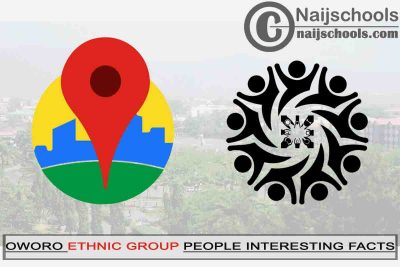The Oworo ethnic group in Nigeria is a diverse and culturally rich ethnic group. This ethnic group has similarities and differences with other tribes. They have their own language and their traditions. This post will bring some Interesting Facts About the People of the Oworo Ethnic Group.
13 Interesting Facts About the People of Oworo Ethnic Group in Nigeria
The people of the Oworo Ethnic Group have some interesting facts about them and these facts would be shared with you in this post.
1. Location
The Oworo people can be found in different states in Nigeria since moving has become more easy with the use of planes and cars, but their primary state is Kogi State and some parts of other states in the country.
2. Language
The Oworo people speak the Oworo language, which belongs to the Yoruba language family. Also, Yoruba is a language that is widely spoken in southwestern Nigeria.
3. Their Origin is One of the Interesting Facts About the People of the Oworo Ethnic Group
In addition, the Oworo people have historical connections with the larger Yoruba ethnic group. Also, they are believed to have migrated from Ile-Ife, the ancestral homeland of the Yoruba people when their ancestors left
4. Cultural Influences
Over the centuries, the Oworo culture has been influenced by interactions with neighbouring ethnic groups, such as the Egun, Ijaw, and Hausa, but they still keep their roots and practice their Yoruba traditions.
5. Occupation
Traditionally, the Oworo people were fishermen and farmers due to their proximity to Lagoons and fertile lands, but in this modern age though you can still find farmers and fishermen among them it is no longer their primary occupation.
6. Their Festivals are Among the Interesting Facts About the People of the Oworo Ethnic Group
In addition, Oworo people celebrate various traditional festivals, including the Eyo festival, which is a colourful and significant cultural event. They also celebrate festivals such as Christmas, Easter and Ramadan depending on their religion.
7. Religion
The majority of Oworo people practice the traditional Yoruba religion, worshipping various deities known as Orishas. However, due to modernization and globalization, Islam and Christianity have also gained followers within the community.
8. Family Structure
The Oworo society is organized around extended families, with a strong emphasis on respect for elders and family values. Also, it is very important for young people to treat their elders with respect and as such show that they were raised right.
9. Their Art and Craftsmanship is One of the Interesting Facts About the People of the Oworo Ethnic Group
Oworo people have a rich tradition of arts and craftsmanship. They are known for their skills in pottery, woodcarving, metal work and beadwork. These skills have been part of their culture for a very long time and they can still be seen among the people.
10. Dressing
In addition, traditional Oworo attire includes colourful, hand-woven fabrics often adorned with intricate beadwork and embroidery. Also, this clothing is very important to their culture, they also dress in modern clothing styles, influenced by contemporary fashion trends.
11. Music and Dance
Music and dance play a vital role in Oworo culture. Also, they have a diverse range of traditional music styles and dance forms depending on the occasion. Meanwhile, marriages and festivals is one of the events where you can see traditional dances and music.
12. Their Food is Among the Interesting Facts About the People of the Oworo Ethnic Group
The Oworo people enjoy a variety of traditional dishes, with fish and other seafood being a significant part of their cuisine due to their historical ties to fishing.
13. Modern Challenges
Like many other ethnic groups in Nigeria, the Oworo community faces challenges which are related to urbanization, infrastructure development, and preserving their cultural heritage in the face of rapid modernization.
Conclusion
The Oworo people’s cultural identity remains vibrant, and they continue to celebrate and uphold their rich traditions while also embracing the changes the modern world brings. The Oworo people are quite well known in their home state and they still continue to thrive.
Also, Check Out;
- 12 Interesting Facts About the People of Ngas (Angas) Ethnic Group in Nigeria
- 13 Interesting Facts About the People of Mobber Ethnic Group in Nigeria
- 13 Interesting Facts About the People of Miya (Miyawa) Ethnic Group in Nigeria

